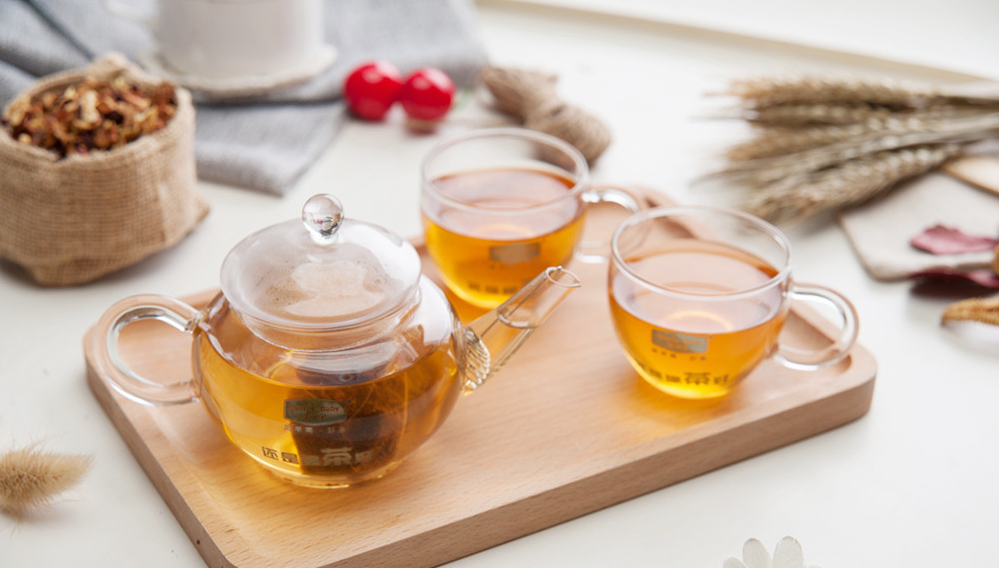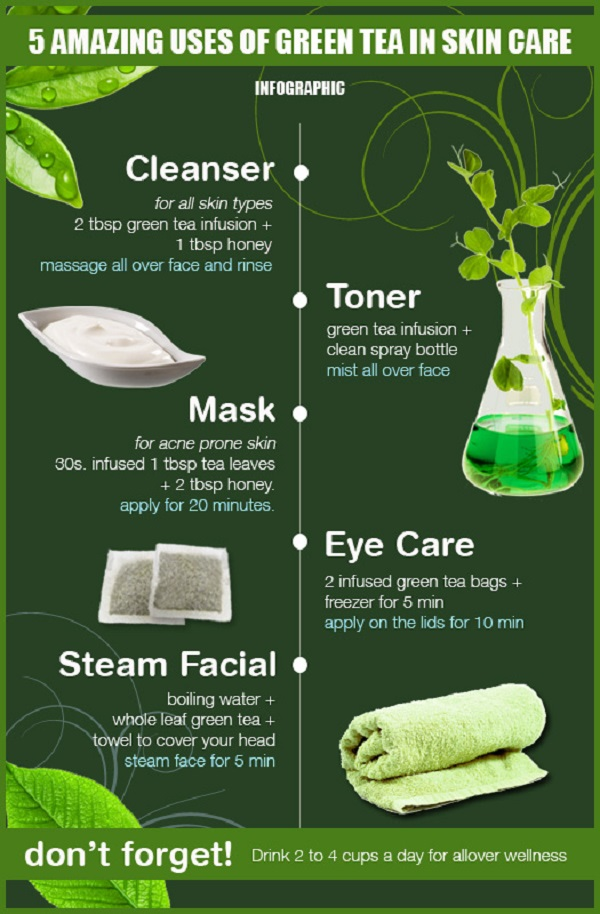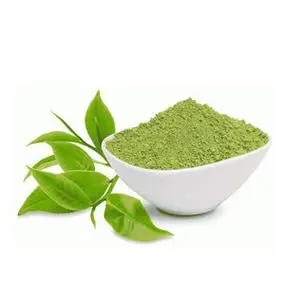Content Menu
● The Process of Making Green Tea Extract
● The Science Behind Green Tea Extract
● Benefits of Green Tea Extract
● Uses of Green Tea Extract
● Precautions and Considerations
● Conclusion
● Questions and Answers about Green Tea Extract
Green tea, derived from the leaves of the Camellia sinensis plant, has been cherished for thousands of years, originating in ancient China. Its popularity has spread worldwide, not only as a refreshing beverage but also as a potent health supplement in the form of green tea extract. This article will guide you through the process of making your own green tea extract, explore its numerous benefits, and discuss its various uses.

The Process of Making Green Tea Extract
Creating your own green tea extract at home is a rewarding process that allows you to harness the full potential of this remarkable plant. Here's a step-by-step guide to help you make your own green tea extract:
1. Selecting Your Green Tea Start with high-quality green tea leaves. You can use loose leaf tea or tea bags, but ensure they are fresh and from a reputable source. The quality of your tea will directly impact the potency of your extract.
2. Preparing the Tea Leaves If using loose leaf tea, grind the leaves into a fine powder using a coffee grinder or mortar and pestle. This increases the surface area of the leaves, allowing for better extraction of the beneficial compounds.

1. Choosing Your Extraction Method There are two primary methods for making green tea extract: water-based and alcohol-based. Each has its advantages, so choose the one that best suits your needs.
Water-Based Extraction:
◆ In a clean 4-cup container, combine 3.5 ounces (about 7 tablespoons) of green tea with 4 cups of still mineral water.
◆ Allow the mixture to steep at room temperature for 1 hour.
◆ Strain the liquid into a lidded container using cheesecloth or a fine-mesh sieve.
◆ Refrigerate the extract and use within a week for best results.
Alcohol-Based Extraction:
◆ In a glass jar, combine your powdered green tea leaves with a high-proof alcohol like vodka or grain alcohol. Use a ratio of 1:4 (tea to alcohol).
◆ Seal the jar tightly and store it in a cool, dark place for 2-6 weeks, shaking it gently every few days.
◆ After the extraction period, strain the liquid through cheesecloth or a coffee filter.
◆ Store the resulting extract in a dark glass bottle away from direct sunlight.
2.Storing Your Green Tea Extract Proper storage is crucial for maintaining the potency of your extract. Keep it in an airtight container, away from light and heat. Water-based extracts should be refrigerated and used within a week, while alcohol-based extracts can last for several months when stored properly.

The Science Behind Green Tea Extract
Green tea extract is rich in polyphenols, particularly catechins, which are powerful antioxidants. The most abundant and well-studied catechin in green tea is epigallocatechin gallate (EGCG). These compounds are responsible for many of the health benefits associated with green tea consumption.
The extraction process aims to concentrate these beneficial compounds. When making green tea extract, the goal is to draw out as many of these polyphenols as possible while preserving their integrity. This is why factors like water temperature, steeping time, and the type of solvent used (water or alcohol) are crucial in the extraction process.
Benefits of Green Tea Extract
The concentrated nature of green tea extract means that it provides a more potent dose of the tea's beneficial compounds. Some of the potential health benefits include:
1. Powerful Antioxidant Properties Green tea extract is rich in catechins, which are potent antioxidants. These compounds help protect cells from damage caused by free radicals, potentially reducing the risk of various chronic diseases.
2. Weight Management Support Some studies suggest that the catechins and caffeine in green tea extract may boost metabolism and increase fat burning, potentially aiding in weight loss efforts when combined with a healthy diet and exercise.
3. Heart Health Regular consumption of green tea extract may help lower the risk of cardiovascular disease by improving cholesterol levels and reducing blood pressure.
4. Brain Function The combination of caffeine and L-theanine in green tea extract may improve brain function, enhancing memory, focus, and overall cognitive performance.
5. Liver Protection Some research indicates that green tea extract may help protect the liver from damage and improve its function.
6. Skin Health The antioxidants in green tea extract may help protect the skin from UV damage and signs of aging when applied topically or consumed orally.

Uses of Green Tea Extract
Green tea extract's versatility makes it suitable for various applications:
1. Dietary Supplement Many people take green tea extract in capsule or liquid form as a daily supplement to boost their antioxidant intake and support overall health.
2. Skincare Products Green tea extract is a popular ingredient in many skincare products due to its antioxidant and anti-inflammatory properties. It can be found in creams, serums, and masks.
3. Hair Care Some hair care products incorporate green tea extract to promote hair growth and improve scalp health.
4. Natural Food Coloring and Flavoring The extract can be used as a natural green coloring agent and flavor enhancer in various food products.
5. Functional Beverages Green tea extract is often added to energy drinks, smoothies, and other beverages to boost their nutritional profile.
6. Aromatherapy The extract can be used in diffusers or added to bathwater for its calming and refreshing aroma.

Precautions and Considerations
While green tea extract offers numerous benefits, it's important to use it responsibly:
1. Caffeine Content: Green tea extract contains caffeine, which may cause side effects like insomnia, nervousness, or increased heart rate in sensitive individuals.
2. Interactions: The extract may interact with certain medications. Consult with a healthcare professional before using green tea extract, especially if you're taking any medications.
3. Liver Health: In rare cases, high doses of green tea extract have been associated with liver problems. Stick to recommended dosages and discontinue use if you experience any adverse effects.
4. Pregnancy and Breastfeeding: Pregnant or breastfeeding women should consult their healthcare provider before using green tea extract.
5. Quality Control: When making your own extract, ensure you use clean, food-grade equipment and high-quality ingredients to prevent contamination.
Conclusion
Making your own green tea extract is a fascinating process that allows you to harness the power of this ancient superfood. Whether you choose the water-based or alcohol-based method, you'll be creating a concentrated form of green tea that's rich in beneficial compounds. From supporting heart health to potentially aiding in weight management, green tea extract offers a wide range of potential benefits.
As with any supplement, it's essential to use green tea extract responsibly and be aware of any potential interactions or side effects. By following the steps outlined in this guide and considering the precautions mentioned, you can safely enjoy the many benefits of green tea extract in your daily routine.
Remember, while green tea extract can be a valuable addition to a healthy lifestyle, it's not a magic solution. Combine its use with a balanced diet, regular exercise, and good sleep habits for the best overall health outcomes. Whether you're sipping on a cup of green tea or using the extract in your skincare routine, you're tapping into centuries of traditional wisdom combined with modern scientific understanding.

Questions and Answers about Green Tea Extract
Q: How long does homemade green tea extract last?
A: Water-based green tea extract should be used within a week when refrigerated. Alcohol-based extracts can last for several months when stored properly in a cool, dark place.
Q: Can I use green tea extract instead of drinking green tea?
A: While green tea extract provides a concentrated dose of beneficial compounds, it shouldn't completely replace drinking green tea. The act of drinking tea can be relaxing and hydrating, and whole tea leaves may contain additional beneficial compounds not found in extracts.
Q: Is it safe to apply green tea extract directly to the skin?
A: Green tea extract is generally safe for topical use, but it's always best to do a patch test first. If you experience any irritation, discontinue use. For skincare, it's often best to use products specifically formulated with green tea extract for topical application.
Q: How much green tea extract should I take daily?
A: The appropriate dosage can vary depending on the concentration of the extract and individual factors. Most studies have used doses of 300-400 mg of green tea extract per day. However, it's best to consult with a healthcare professional for personalized advice.
Q: Can green tea extract help with weight loss?
A: Some studies suggest that green tea extract may support weight loss efforts by boosting metabolism and fat oxidation. However, it's not a magic solution and should be combined with a healthy diet and regular exercise for the best results.

































